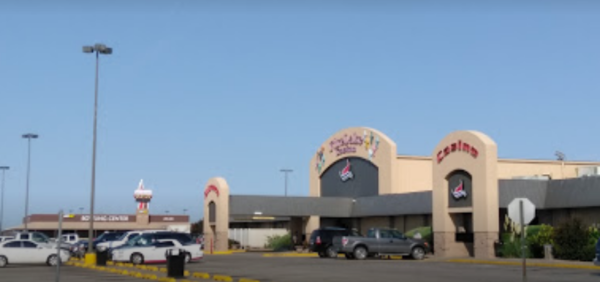
- Details
- By Lenzy Krehbiel Burton
TULSA, Okla. — The continued spread of COVID-19 has caused another round of closures and shifts in Oklahoma tribes’ casinos, hospitality operations and government offices.
On Saturday, the Citizen Potawatomi Nation announced the temporary closure of its FireLake Casino on Shawnee’s south side.
The tribe’s flagship property, the Grand Casino, is still open.
One of Oklahoma’s last tribes to reopen its properties, the Seminole Nation announced on Monday that its Wewoka casino would once again be shuttered. On Tuesday, its Rivermist Casino near Konawa followed suit. The tribe’s casino north of Seminole remains open. The three sites re-opened on June 15 with additional measures meant to prohibit COVID from spreading further, including mandatory temperature checks and additional hand sanitizer stations throughout the gaming floors
On Wednesday, the Comanche Nation announced the temporary closure of its tribal complex, including its housing authority, realty and tax commission offices, through July 13 due to the virus. In the closure announcement, Comanche Nation chairman William Nelson acknowledged the steady increase in cases across Oklahoma, which added more than 6,000 cases just in the month of June.
“The opening of America and the self-decision of Southwest Oklahomans not utilizing personal protective equipment, social distancing and avoidance of crowds has caused various spikes in our community and tribal operations,” he wrote.
On June 24, the Lawton-based tribe announced its water park, Comanche Nation Waterpark and Nations of Fun, would remain closed through the rest of the summer in an effort to prevent any further community spread of the virus.
Meanwhile, other tribes have implemented additional preventative measures in response to the continued rise in COVID cases.
For example, the Choctaw Nation has now made masks mandatory for all casino guests as of Tuesday. Previously, they were only required at the table games.
Citing the continued increase in cases, the Cherokee Nation has delayed its phased reopening of its government offices. The tribe was originally scheduled to enter the third of its five reopening phases on July 6, which would have offices fully staffed, but still allow at-risk employees to continue to work from home or take administrative leave.
Instead, Cherokee Nation employees will continue to have staggered shifts through at least the end of July in order to minimize physical contact in the office.
The Tahlequah-based tribe has also implemented surface testing to its list of safety protocols.
At each of the tribe’s 150 government offices across northeastern Oklahoma, sterile swabs are rolled over high-touch surfaces such as doorknobs, light switches, desk and table tops as well as surfaces in public areas like waiting rooms and restrooms.
Each swab is then placed in a separate test tube and labeled with the date and time of collection, sample number, building reference number, room or location, and employee number of the person collecting the sample. With detailed labeling, the area and location being tested can easily be identified should a test come back with traces of COVID-19.
With the environmental testing system, called ENVIROx-RV, the COVID-19 virus can accurately be detected in less than six hours of the laboratory receiving the test sample. This rapid testing system can also detect as many as nine other viral organisms such as the flu in the air and on surfaces.
“Protecting our staff against COVID-19 requires a multi-faceted approach, and with the safety and sanitation measures we have in place, we are instilling confidence and reassurance in our employees that their health and safety is our top priority,” Cherokee Nation Chief of Staff Todd Enlow said.
More Stories Like This
Two Feathers Native American Family Services Wins 2026 Irvine Leadership AwardBill Would Give Federal Marshals Authority to Help Tribes Find Missing Children
Indian Health Service to Phase Out Mercury-Containing Dental Amalgam by 2027
End of Enhanced Obamacare Subsidies Puts Tribal Health Lifeline at Risk
Santa Ynez Tribal Health Clinic to Host Free Pediatric Dental Clinic
